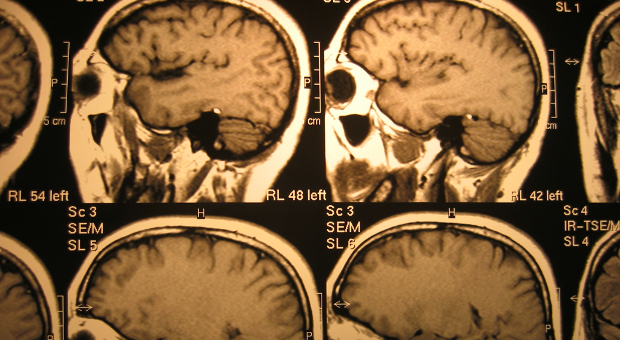Study finds no significant benefit to progesterone use in treatment of TBIs

Treatment of acute traumatic brain injury with the hormone progesterone provides no significant benefit to patients when compared with placebo, a NIH-funded phase III clinical trial has concluded.
The study, named ProTECT III, involved 49 trauma centers across the United States including Penn State Milton S. Hershey Medical Center between July 2009 and November 2013. The study was originally planned to include 1,140 patients, but was stopped after 882 patients because safety monitors determined that additional enrollment would be futile.
Survival and favorable outcomes were not significantly different in the progesterone-treated group than in the placebo-treated group. Favorable outcomes occurred in 51 percent of those who received progesterone and 56 percent of those who received placebo. Mortality after six months was 18.8 percent for progesterone and 15.7 percent for placebo.
The study was funded by the National Institute of Neurological Disorders and Stroke and organized as part of the NETT (Neurological Emergencies Treatment Trials) network. Results were published in the New England Journal of Medicine.
The rationale for testing progesterone grew out of the observation that women tend to respond to treatment and recover better than men after traumatic brain injury. Both men and women naturally produce progesterone, a steroid hormone important for brain development as well as reproductive functions.
Because of a limited time frame (within four hours) for administering progesterone after brain injury, this study was conducted under exception from informed consent (EFIC), following Food and Drug Administration regulations. EFIC is allowed only when testing treatments for life-threatening conditions and when consent from the patient is not possible and treatment efficacy is thought to depend on being administered quickly.
When legally authorized representatives were available, written informed consent was obtained prior to enrollment. For patients enrolled under EFIC, they or their representatives were notified of enrollment as soon as possible and asked for written consent to continue in the study.
If you're having trouble accessing this content, or would like it in another format, please email Penn State Health Marketing & Communications.
